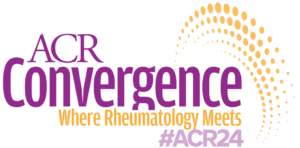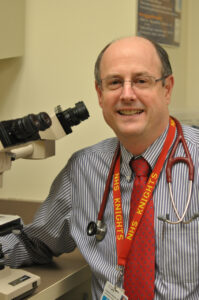 An engaging mix of new and returning programming is planned for ACR Convergence in Washington, D.C.
An engaging mix of new and returning programming is planned for ACR Convergence in Washington, D.C.
“ACR Convergence is unique because of the blend of high-quality science, updates on advances in clinical care and networking opportunities to advance the field of rheumatology,” says Annual Meeting Planning Committee (AMPC) Chair Gregory C. Gardner, MD, MACP. “We take the role of a scientific meeting seriously. It is a unique gathering of colleagues from all over the world to share science and inspire the next generation of clinicians and researchers.”
Registration for this year’s meeting, which will take place Nov. 14–19 at the Walter E. Washington Convention Center, is open, with two options for attendance, both of which include on-demand access to scientific session recordings through Oct. 31, 2025.
“Attendees should expect to have access to the latest advances in science that will impact our understanding of, and approach to, treating rheumatic diseases,” says Dr. Gardner. “The meeting should appeal to both researchers and clinicians whose career focus is on the broad category of rheumatic disease. This would include physicians, PhDs, ARNPs, PAs, OTs/PTs, social workers, etc. We are also interested in providing networking [opportunities] at ACR Convergence to foster collaboration and connection to accelerate the forward movement of the field of rheumatology.”
In addition to a full slate of activities in the Networking Lounges, two rooms will be dedicated to active learning sessions, in which audience participation will be integral to the learning experience.
“I am interested in bringing more opportunities for active learning to ACR Convergence, the type of learning that fosters attendee reflection and helps incorporate new ideas and concepts into the clinic and laboratory,” says Dr. Gardner, emeritus professor in the Division of Rheumatology at the University of Washington, Seattle.
To this end, faculty this year will have the unique opportunity to receive guidance on current principles of teaching and learning to foster active learning in a large group setting and have a medical educator review their presentations and provide feedback if desired. This important effort is being led by Kirsten Koons, MD, Jay Mehta, MD, MS, and Andrew Vreede, MD, members of the AMPC Quality Improvement in Learning and Teaching (QuILT) group.
“We anticipate that our effort to address teaching quality will make the sessions more impactful and improve information transfer at ACR Convergence,” says Dr. Gardner. “I am very appreciative of the efforts of our QuILT group.”




